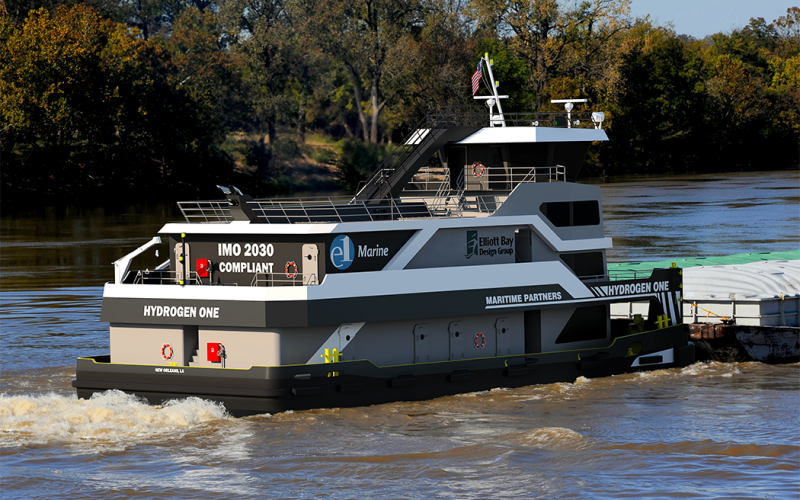Maritime Partners recently finalized the acquisition of e1 Marine, a company renowned for its advanced clean energy solutions, particularly in methanol-to-hydrogen technology. This technology, derived from Element 1 Corp., is designed to offer marine vessels a cleaner alternative fuel source.
Bick Brooks, CEO of Maritime Partners, emphasized the acquisition as a pivotal step in their dedication to environmental stewardship and innovation. The integration of e1 Marine’s cutting-edge technology with Maritime Partners’ extensive industry expertise is expected to redefine marine power applications, contributing to a more sustainable future.
Element 1 Corp., as the licensor of the methanol-to-hydrogen technology to e1 Marine, expressed their commitment to supporting Maritime Partners in revolutionizing marine propulsion. Dave Edlund, CEO of Element 1 Corp., highlighted the compact, scalable, and energy-efficient nature of their technology, emphasizing its potential to significantly advance fuel efficiency and reduce emissions in marine operations.

Maritime Partners has already begun implementing e1 Marine’s technology, notably with the M/V Hydrogen One towboat. This vessel, a groundbreaking initiative in marine engineering, utilizes onboard methanol conversion to hydrogen, supported by a design basis agreement with the U.S. Coast Guard. The company anticipates that this initiative will serve as a model for cleaner energy adoption across the maritime industry.
Dave Lee, VP of Technology & Innovation at Maritime Partners, underscored their commitment to sustainable energy solutions. He emphasized that the acquisition of e1 Marine and the development of the Hydrogen One vessel are integral to their ongoing efforts to explore cleaner, greener, and more efficient fuel options for marine transport.
Previously, e1 Marine collaborated with PowerCell Group and RIX Industries to validate their technologies for marine propulsion. The successful tests demonstrated the viability of converting methanol to hydrogen onboard ships, which is subsequently used in fuel cells to generate power cleanly and efficiently.
This collaboration represents a significant milestone in advancing the adoption of alternative fuels in maritime operations, aligning with global efforts toward environmental sustainability.


